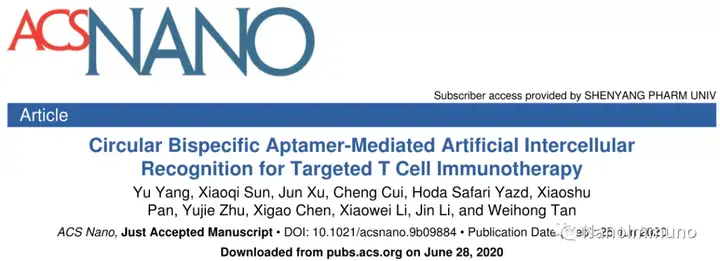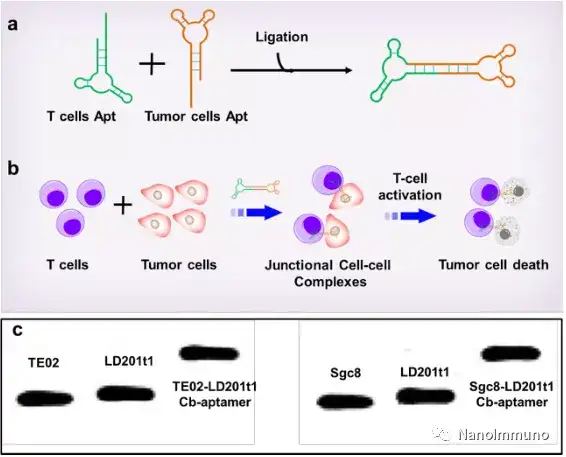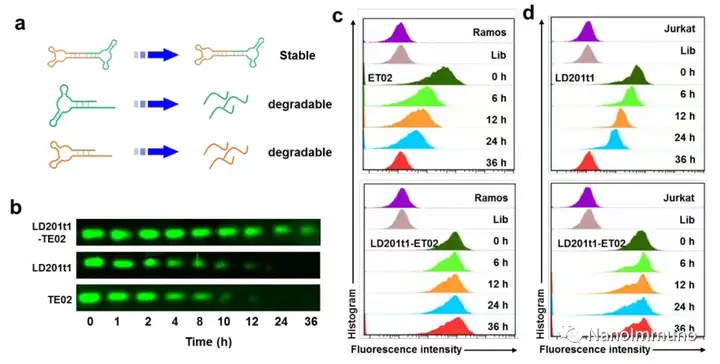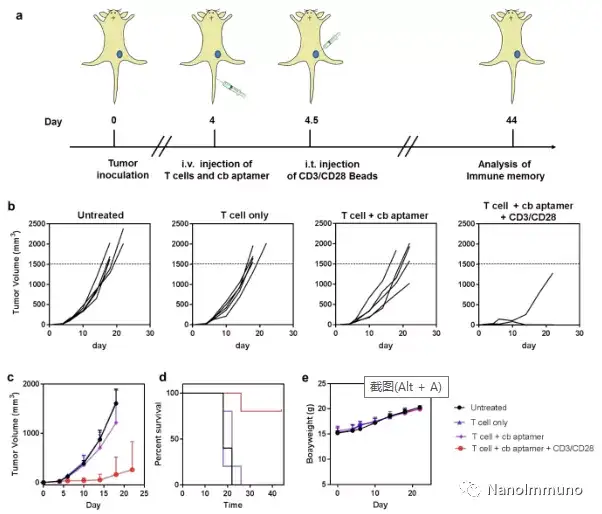已传文件:photo/1631586161.png
Adoptive T cell immunotherapy, such as chimeric antigen receptor (CAR) T cell therapy, has been proven to be an effective method for the treatment of hematological malignancies. However, it is challenged by complex in vitro engineering, systemic side effects, and low expression of tumor-specific antigens, especially in solid tumors. The team of Academician Tan Weihong proposed a recognize first and then activate strategy, that is, first help initial T cells recognize and adhere to cancer cells, and then activate the accumulated T cells in situ to specifically kill cancer cells. In this way, the anti-tumor ability of T cells can be exerted without the need for complex and time-consuming cell engineering.
In this paper, we first constructed circular bispecific aptamers CB-aptamers, which are a class of chemical circular aptamers with higher stability and molecular recognition ability, which can bind to two different types of cells at the same time. To form an artificial cell recognition between the initial T cell and the tumor cell. After CB-aptamer-mediated T cells accumulate in the tumor, the T cells at the tumor site are subsequently activated in situ by the CD3/CD28 T cell activator to induce specific tumor killing. In addition, by simply selecting different anti-tumor aptamers, the application of this recognition-and then activation strategy can be extended to target therapies for various types of cancer. It represents a simple T cell immunotherapy, which is effective for multiple types of cancer. The effect of cancer treatment is remarkable.
With the help of bispecific aptamers that integrate T cell aptamers and anti-tumor aptamers, the initial T cells in the blood or lymphatic system can specifically and efficiently accumulate at the tumor site without the need for complexity and time-consuming In vitro engineering process. After the binding cell-cell complex is formed, the T cell activator microspheres activate the T cells in the binding cell complex in situ, thereby realizing CB-aptamer-mediated targeted T cell immunotherapy without There will be systemic cytokine release syndrome. This CB-aptamer-based recognition-activation strategy can treat heterogeneous solid tumors. In addition, by replacing anti-cancer aptamers, this recognize first and then activate strategy can be extended to a general method, providing an efficient and low side effect strategy for in vivo T cell immunotherapy.
This information is sourced from the Internet for academic exchanges. If there is any infringement, please contact us to delete it immediately







